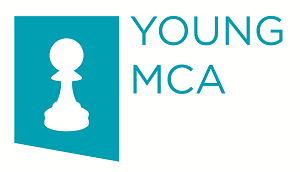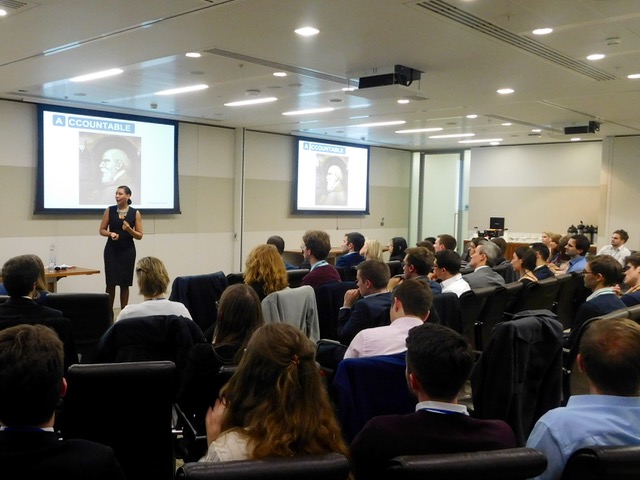For a young consultant to succeed in their career, they must quickly learn to perform at the maximum of their ability. But to consistently perform at this level, they must first understand the root of confidence and build their own self-belief.
At a recent event, hosted by Deloitte, the Young MCA were joined by Peak Performance and Public Speaking Expert Elaine Powell. Elaine came to share her tips on how to become a peak performer and increase your own confidence.
Elaine started the session with the story of her own journey. In 2008, after travelling around the world, she was still unsure what her passion was. Her friend took her to a seminar about personal development, from which Elaine believed she found her calling; Presenting and Public Speaking. Despite the excitement to venture into a new career, Elaine struggled to connect with her audience. She decided to enrol into a weekly amateur public speaking class called ‘Toastmasters’ in order to develop her confidence. Six months after joining Toastmasters, Elaine found herself winning local competitions and delivering public speaking workshops in secondary schools. Fast forward to today, she has trained over 20,000 people and delivered over 500 workshops. She had managed to tap into her confidence and became a peak performer.
Elaine took the Young MCA through the ‘5 Keys to Peak Performance and Confidence’ – Attitude, Awareness, Assignment, Actions and Accountability. Peak performance is a state in which a person performs to the maximum of their ability regardless of your thoughts, feelings, reasons and excuses with total concentration.
Everyone who is considered as a peak performer, from top business leaders to international sports stars, have used these keys either directly or indirectly:
- Attitude: Our attitude is predominantly affected by our mind set, and our mind-set is affected by our thoughts. Those who have excelled and have reached their peak performance have mastered their thought creation. Elaine explained that ‘thoughts are like cars driving by you’; some we let pass, others we hail down, argue with the driver or even hop in and change direction. The key lesson to learn is that we do not have to respond to all of our thoughts. The thoughts we respond to form our mind set and that forms our attitude to life. We should learn to ‘acknowledge, accept and move on’.
- Awareness: Naturally, we are very good at blaming people for our outcomes in life. Sometimes there are certain situations we cannot control, but we still have the power to control how we feel or how we respond. Therefore, we must be aware to take full responsibility for our actions. Without taking responsibility there is no power. Leadership means taking 100% responsibility.
- Assignment: What is your big picture? What it is your empowering context? What you are living for? It is the thing you are creating bigger than yourself. When you want to give up, it keeps you going. If you stand only for yourself, then you can only make a small mark on the world. Mahatma Gandhi’s assignment was bigger than him and was worth fighting for, his assignment was to fight for the freedom of India and help oppressed people.
- Actions: Beliefs and thoughts are not as useful without actions to put them in place. We must not only talk about our dreams; but use actions to put them into existence. Confidence comes from stepping outside our comfort zone. To be a peak performer you must always keep moving.
- Accountability: Accountability is about getting constructive feedback. All top performers in any business must have somebody that they are accountable to. This could be in the form of a manager, leader, business or life coach. As a top performer it is important to have someone you are accountable to because they help you get to the top. For example, Serena Williams’ coach is not a better tennis player then her, but still helped her reach her peak performance by highlighting areas of improvement.
During the event, Elaine ran breakout sessions on each Key to Peak Performance and Confidence to give the audience practical experience.
Confidence is knowing what you're good at, the value you provide, and acting in a way that conveys that to others. Confidence is a critical attribute that can be developed with the right mind set and exposure. The tips above will support you in the journey of developing your confidence which is imperative to gaining more out of your consulting career and delivery of quality solutions to clients.
 Written by Ade Tokan, as part of the Young MCA Update
Written by Ade Tokan, as part of the Young MCA Update

